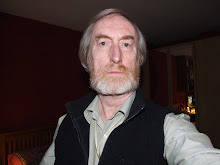It wasn't a problem going down to the state capital, Columbus, for the day. I didn't have to start early, and, if it hadn't been for particularly bad weather, I wouldn't have been late back. Glasgow, seventeen or twenty miles down the road, I could go for the evening. In modern American, no distance at all.
But that can't have been true in 1880. Twenty miles must have been a fair old trip then. It might even have involved an overnight stay, if the trains didn't quite fit together, or the business took too long.
It is interesting, then, that, on the fifteenth of June 1880, a mere five days after a man called Haskinson had gone from door-to-door in Glasgow writing down everyone's name, the powers-of-attorney letter given to Lawrence Hill Watson in Scotland four years before was finally received at the Tuscarawas courthouse in New Phillidelphia. Did Hill Watson take it himself, or did he trust someone to do it for him?
Haskinson was the local enumerator for the 1880 US census. He collected a basic set of information for everybody, not, it has to be said, always in the best of hands. Of course, he would have been labouring under a number of difficulties. It would be another four years before Lewis Edson Waterman even patented a useable fountain pen. And he was carrying quite a large book.
But, as a result of his labours, we know where everyone was in Glasgow that day. In partcular, we know where Lawrence Hill Watson was, what age he was, and who he was living with. And we know he styled himself "Secretary of the Furnace". He was recorded as being 29, so when he was charged with his momentous tasks, back in Scotland, he was only 24.
The enumerator found him esconced in the lodging house of one Plino Price and his wife Loretta, next to the saloon. What can only be described as his 'gang' are lodged there with him. They are all about his age, and all from Scotland. There is a "Foundryman", an "Engineer", (those two probably brothers), a "Cashier", a "Manager of Furnace", and, more down-to-earth, a "Filler at Furnace". There is also an Irishman describing himself as a "Merchant" and an American housemaid. One can just imagine the sort of conversation which is conducted round the dinner table. Presumably Mr and Mrs Price, who are Americans, have the confidence of the gang. One has to wonder, for a moment, about the furnace filler. This is a heavy labouring job. Perhaps he looked out for the others. Perhaps it was him who rushed off to New Phillidelphia with the letter for copying.
Living next door are the furnace keeper and his wife, also in their twenties, but they have a one-year-old son who was born in Scotland. Is he in the gang, living in married quarters, or is he about to get some bad news? Surely, if he knew what was planned, he would not have brought a wife and infant with him?
They must surely be aware that, six doors down, another man is going to describe himself as "Furnace Manager". This is William Rennie, who came here in 1871. He now has five children, two born here. (The history book tells us he remained in Ohio, and was living in New Philidelphia in 1884.)
There are 371 souls in the Glasgow that day. There are farmers (which is surprising), an Irish saloon-keeper, and a storekeeper from Pennsylvania, but most are furnace workers, miners, and various kinds of tradesmen. Many are from Scotland, but it is pretty polyglot, with Irish, English, Welsh, German, Swiss, and French.
The furnace had stopped and restarted twice in the last couple of years, so they must have been living on hope. And they must have known the role of the gang in the lodging house. Do they think of them as saviors or executioners? Or as both?
Not many of you will be aware that among the statisticians waiting to process the 1880 census information was one Herman Hollerith, who as a result, worked out they would simply not be able to do it in 1890 (the 1880 census took seven years to tabulate). To cut a long story short, Hollerith invented punched-card tabulating, automated the 1890 census, then set up a company to exploit his machines. In 1918, Thomas Watson joined the company, and by 1924 it was called IBM. IBM came to Greenock, just outside Glasgow, Scotland in the early 1950s, and appears still to be there.




No comments:
Post a Comment